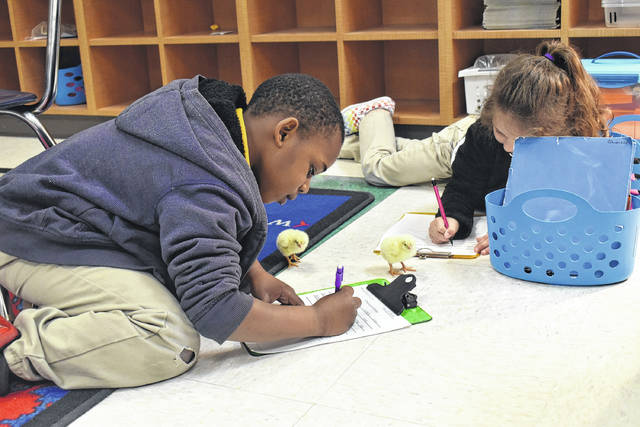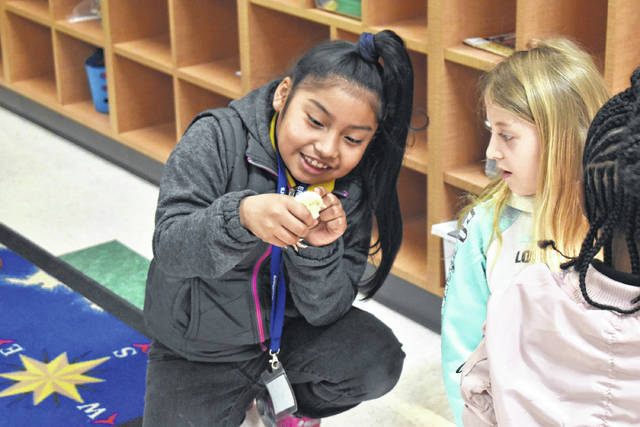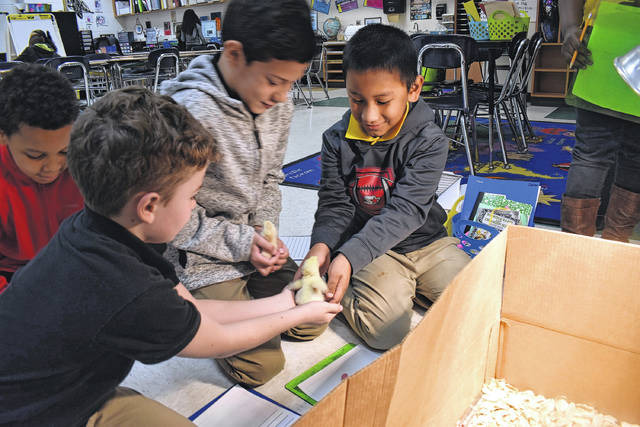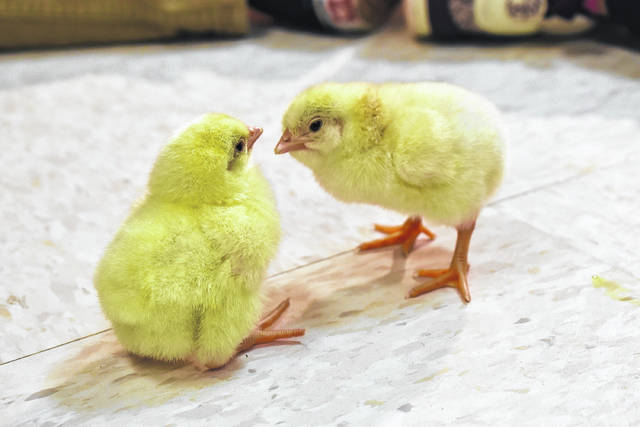ROCKINGHAM — All across Richmond County Schools — both public and private — second grade students have had the opportunity to nuture and observe baby chicks from their time in the egg to small, yellow balls of fluff.
Kelly DeLong, director of K-12 math and science, said the schools have partnered with the North Carolina Cooperative Extension for their life cycle curriculum for years.
“It’s a wonderful opportunity for students to see the circle of life, and the wonder and delight for life,” said DeLong.
Down the halls at East Rockingham Elementary School, the sound of chicks chirping echoed near Julie Young’s classroom Tuesday morning as her students had the opportunity to closely observe their new classmates.
Young said she grew up on a farm in Pennsylvania and knows a thing or two about raising baby chicks. But she said it was more fun seeing it through her student’s eyes.
“This is the coolest part of second grade,” said Young. “They get to watch their learning come to life.”
With clipboards in one hand, and a baby chick in the other, students sat around the box on the floor and wrote down their observations including how the chicks felt in their hand, what they sounded like, what they looked like and everything else they did.
“It’s fluffy,” giggled one student.
“And warm,” said another.
“They’re cute,” said one as they held the chick close.
Young said the eggs and incubators were dropped off to teachers toward the end of February by Catherine Shelley, Richmond County 4-H extension agent, and the eggs were donated by Tyson Foods.
“They’ve taken care of them,” said Young. “They’ll water them, rotate them and observe them. And they learn a lot because it’s hands on.”
Some students even named them, although Young said it’s hard to tell them apart since they all look the same. But one student decided to name his “Cheep Cheep.”
All the curriculum and training is provided by Shelley. DeLong said they have a great partnership, and Shelley said it’s up to the teachers on how they want to structure their lessons.
“It’s one of my favorite programs,” said Shelley. “You get to see the excitement of children being able to watch them.”
In addition to the hatch days happening around Richmond County Schools, Tractor Supply stores across the nation are celebrating Chick Day events in several store locations. The 10-week springtime event, which will run until the end of April, features live baby chicks and ducklings along with supplies needed to begin or grow a backyard flock.
They also offer guidance on several topics from how to properly handle the animals to the importance of hygiene.
“People may be surprised by what they can do at home if they want to cultivate their own gardens or feel connected to where their food comes from,” said Tiffany Denter, poultry supplies buyer for Tractor Supply in a press release. “By keeping backyard chickens, people can embrace this lifestyle no matter where they live, reaping many physical and mental benefits. And when it comes down to it, nothing beats a fresh egg right from your backyard.”
But the students won’t be able to keep the chicks forever. Later in the week, Shelley said, 4-H kids and farmers will take the chicks to raise for meat.





